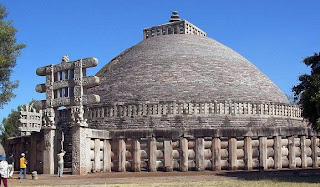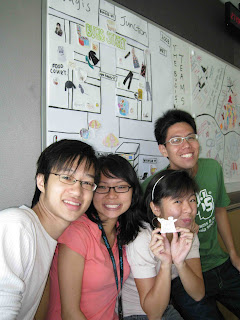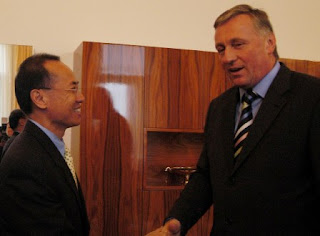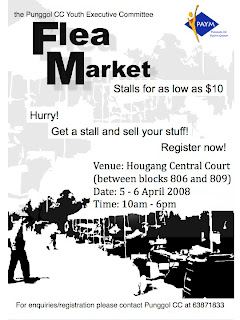[Pragmatic Singapore]Is philosophy a belief? That was a question that Singaporean contemporary artist Cheo Chai Hiang raised to provoke in an artist talk at NAFA today. His answer? Philosophy makes people think, belief is a lazy emotion.
And I agree. Sometime back in Ethnography class, we asked why a chair is a chair? Does a chair need to have four legs? Does having three legs still make a chair a chair? What if it has no legs? Is it still a chair? That brought up the discussion of the great philosophers Plato and Aristotle. A chair is simple a chair because of the inscibed meanings that we place on it. The discussion grew deeper and we debated about names and other things such as if one is still alive when brain dead. Now that is philosophy.
After the talk, I posed a question to my colleagues. Is belief an art or a science? It is a science if it follows the positivist approach where every single aspect is based on direct observation or experience and based on facts. It is an art because belief is taken at face value and not questioned.
Cheo Chai Hiang's talk on Journying and Sojournying opened my mind further towards the interpretation of art. I was intrigued before with the exposure that I had with installation art as well as during Singapore Biennale in 2006.
After doing an installation art during my Creative Thinking classes, I realised art is deep. It may seem simple when taken at face value. But when you take time to think about it, you go deeper in thought about what it really is. What is the meaning of art? Is it the essence of art that is important, the object, or the thinking that makes art art? I believe in the latter.
There were many small details and lessons in just one talk alone.
One was on searching for the source of the Singapore. Chai Hiang traced the source of the Singapore River and reached a covered area where he believed was the start of the river. He talked about the uncovering of the covered source of the Singapore river.
Another was a political take on art. When the old national library was going to close, he proposed an artpiece which puts the old national library and a building designed by I.M Pei - The Gateway - together in a large bin. His idea was to have people transport the remains (rubble) of the old national library to the new national library. This rubble was to be put in a bin together with elements of The Gateway. A video of the process was to be recorded thus becoming a symbolism of throwing away the old national library. This proposal was sadly rejected by the National Library Board.
Chai Hiang spoke about how many of his ideas were clamped down upon or rejected by the Singapore Government (or its officials). For example, he spoke of how a portrait of Lu Xun at the old LaSalle building was white-washed. This prompted him to talk about his artwork titled Erased, Mislaid, Rejected, Revisited.
Another strong idea was of how things do not remain for long and the idea of holding on to things that one has. He spoke about the building of K K Hospital on a cemetery site - from death (cemetery) to life (K K Hospital). This was to show that nothing really remains the same. To illustrate his point on dying street opera, he took to the streets with people dressed in opera costumes and thick make-up. These actors went all over town and even travelled on the MRT trains.
Cheo Chai Hiang's works are justaposed with poems (usually Chinese ones) and are thought-provoking. They are political (his work in Sydney had bags under the counter to make a point where corruption was rampant in Sydney during the real estate boom where politicians were bribed) and are a form of social commentaries beyond the written word.
Before ending the talk, he challenged those present to think outside pragmatism (which is the current situation in Singapore) and to add in a bit of idealism. Pragmatism to him, I suppose, is boring (from what he said) because if everyone is so practical, you can expect the outcomes. Well, I think he wants to have some surprises. I believe surprises are good. Then we can break out from that mould that makes Singapore the way it has been for the last 42 years. Has it been stiff and boring?

Photo credit: http://www.pilotlondon.org/artists/image.php?img_id=436&year=2005
I'm glad to say that internship at the National Arts Council is not about sticking in the office the whole day. The exposure to many artworks both in the office (through looking at magazines of other worldwide biennales) and though such talks quenches the thirst to know more. Some surprises are good. There's no doubt about it.














